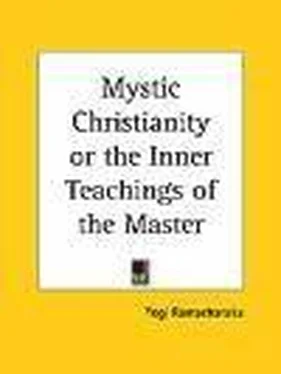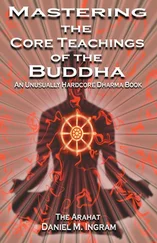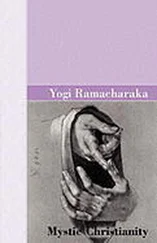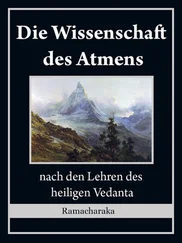The Nicene Creed was drawn up and adopted by the Council of Nice in the year A.D. 325. As originally adopted it ended with the words "I believe in the Holy Ghost," the present concluding clauses being added by the Council of Constantinople in A.D. 381, excepting the words "and the Son," which were inserted by the Council of Toledo, A.D. 589. It is as follows:
"I believe in one God, the Father, Almighty, Maker of Heaven and earth, and all things visible and invisible; and in one Lord Jesus Christ, the only-begotten Son of God, begotten of his Father before all worlds, God of God, Light of Light, very God of very God, begotten, not made, being of one substance with the Father, by whom all things were made; who for us men and for our salvation came down from heaven and was incarnate by the Holy Ghost of the Virgin Mary, and was made man, and was crucified also for us under Pontius Pilate; he suffered and was buried and the third day he rose again according to the scriptures and ascended into heaven, and sitteth on the right hand of the Father; and he shall come again with glory to judge both the quick and the dead, whose kingdom shall have no end. And I believe in the Holy Ghost, the Lord and Giver of Life, who proceedeth from the Father and the Son, who with the Father and Son is worshipped and glorified, who spoke by the prophets; and I believe in one catholic and apostolic church; I acknowledge one baptism for the remission of sins, and I look for the resurrection of the dead and the life of the world to come."
Let us now briefly examine the principal statements of these creeds, which were compiled centuries after Jesus' death, viewing them by the light of Mystic Christianity.
"I believe in one God, the Father Almighty, Maker of heaven and earth, and all things visible and invisible."-(_Nicene Creed_.)
The form of the above fundamental principle of Christian belief is taken from the Nicene Creed, which is somewhat fuller than the similar declaration in the Apostles' Creed. It requires no comment. It is a statement of belief in a One Creative Power, from which all things have proceeded. There is no attempt made to "explain" the nature of the Absolute, or to endow it with any of the human attributes which theologians have delighted in bestowing upon the One. It merely asserts a belief in the existence of One Supreme Being-which is all that is possible to man-all else is ignorant impertinence.
"And in Jesus Christ his only Son our Lord, who was conceived by the Holy Ghost."-(_Apostles' Creed_.)
"And in one Lord Jesus Christ, the only begotten Son of God, begotten of his Father before all worlds, God of God, Light of Light, very God of very God, begotten, not made, being of one substance with the Father."-(_Nicene Creed_.)
In this declaration, the belief in the Divinity of Jesus is made. The Apostles' Creed shows the cruder conception, rather inclining toward the perverted idea of the conception of the Virgin by the aid of the Holy Ghost, similar to the origin of the hero-gods of the different religions in which the father was one of the gods and the mother a woman. But the Nicene creed gives at least a strong hint of the mystic teachings. It speaks of Him as "begotten of his Father"-"begotten, not made." The expressions, "God of God; Light of Light; very God of very God," show the idea of identical spiritual substance in the Spirit. And then the remarkable expression, "being of one substance with the Father," shows a wonderful understanding of the Mystery of The Christ. For, as the mystic teachings show, Jesus was a pure Spirit, free from the entangling desires and clogging Karma of the world. Identical in substance with the Father. "The Father and I are one," as He said. Is there anything in the Orthodox Theology that throws such light on this subject as is shed by Mystic Christianity's teaching regarding the nature of the soul of Jesus?
"Born of the Virgin Mary."-(_Apostles' Creed_.)
"Who for us men and for our salvation came down from heaven, and was incarnate by the Holy Ghost of the Virgin Mary, and was made man."-(_Nicene Creed_.)
The Nicene Creed here gives a surprisingly clear statement of the Mystic teachings. "Who for us men and our salvation came down from heaven" shows the purpose of the incarnation. "Came down from heaven" shows pre-existence in the bosom of the Absolute. "And was incarnate" shows the descent of the Spirit into the flesh in the womb of Mary. "And was made man" shows the taking on of the physical body of the infant in the womb. Does not the Mystic teaching give a clearer light on this statement of the Creed?
"Was crucified, dead and buried; he descended into hell; the third day he rose again from the dead."-(_Apostles' Creed_.)
"He suffered and was buried, and the third day he rose again according to the scriptures, and sitteth on the right hand of the Father."-(_Nicene Creed_.)
The "descent into hell" of the Apostles' Creed of course meant the passing to the place of disembodied souls-the lower Astral Plane. Even the orthodox teachers do not now pretend that the term "hell" meant the place of torture presided over by the Devil, which theology has invented to frighten people into the churches. "The third day he arose from the dead" (and the corresponding passage in the Nicene Creed) refers to the appearance in the Astral Body-the return from the Astral Plane in which He had sojourned for the three days following the crucifixion. "And ascended into heaven"-this passage shows the belief that He returned to the place from which He came, for the Nicene Creed has stated that he "_came down from heaven_ and was incarnate… and was made man."
The passage in both creeds stating that He then took his place "on the right hand of the Father" is intended to show that He took the place of the highest honor in the gift of the Father. The mystic teachings explain this by showing that The Christ is separated from The Father by but the most ethereal intervening of spiritual substance, and that He is a Cosmic Principle second in importance only to the Father. Truly this is the place of honor on "the right hand of the Father."
"He shall come to fudge the quick and the dead."
In this passage we see the intimation that not only with the "quick" or living people is The Christ concerned, but also with the "dead," that is, with those who "passed out" before and after His time and who have passed on to the Astral World, as we have explained in this lesson. Whether or not the framers of the Creed so understood it-whether or not they were deluded by the tradition of the "Day of Judgment"-certainly the Early Christians, or rather, the mystics among them, understood the teachings as we have given them and spoke of Him as "living in the dead as well as in the living," as one of the occult records expresses it.
"The communion of saints" is the spiritual understanding of the Mysteries by the Illumined Ones. "The forgiveness of sins" is the overcoming of the carnal mind and desires. "The resurrection of the dead and the life of the world to come" is the promise of life beyond the grave, and not the crude idea of the physical resurrection of the body, which has crept into the Apostles' Creed, evidently having been inserted at a later date in order to bolster up the pet theories of a school of theologians. Note that the Nicene Creed says merely "the dead" and not "the body." The version of the teachings preserved by the Mystics has a corresponding passage, "And we know the _truth_ of the _deathlessness of the soul_." (The italics are ours.)
The consideration of remaining passages in the creeds, relating to the existence of the "Holy Ghost," must be deferred until our next lesson.
THE TENTH LESSON. THE SECRET DOCTRINE.
The concluding statement of the Creeds (brought over from the preceding lesson) refers to the Holy Ghost.
Читать дальше












